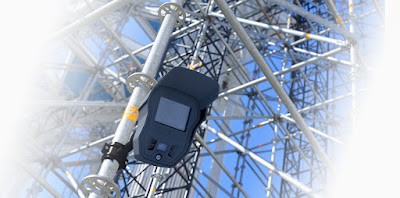How can I improve security on a construction site?
John Hicks, founder of Property Security Group Limited writes:
Construction site theft, arson attacks and vandalism have become commonplace events problems for construction companies of all sizes.
Over my many years in the security sector, I have seen it continue to grow. In truth, however, I still see security measures being demanded once an incident has occurred rather than proactive measures being taken in advance.
To minimise the risk of your company from becoming the next statistic, I recommend that you create an effective construction site security plan. Here are some ideas that you might wish to consider:
1.
Create local awareness
Any security plan works better when everyone works together. Promoting security awareness to employees is a good start, but you need to go a little further. Firstly, contact local police to let them know about the construction project and chat to nearby properties to see if they’d be willing to keep an eye out for suspicious activity.
2.
Think like a criminal
Walk
around the property at night and ask yourself how confident you would feel if
you wanted to steal equipment or vandalise your area. Don’t just think like a
professional thief. How about a kid just wanting to play around or cause
trouble? If you were them, how would you do it?
So you can sleep easier at night, if possible, surround the perimeter with fencing or hoarding. If fencing is in place, look for the easiest way for someone to breach your perimeter. Avoid putting the fence near trees and avoid putting equipment and materials near the fence. Next, make sure that the area is well lit, especially any weak areas in the perimeter. Put you plant in a separate compound.
3.
Guard the site
Fences
and lights can deter the opportunist thief and vandals, but a determined
criminal comes prepared with bolt cutters and a plan. That’s where static
security guards or electronic, monitored, camera surveillance come in.
On
small sites, the use of an on-site guard can be expensive, so I always
recommend visual verification camera systems. These are self-powered, GSM,
wireless and portable; they do not require electricity, broadband or telephone
connection.
CCTV
is great but they require electricity and, whilst they provide high quality
images, they’re usually only come into their own the next working day when you
can review images. But, by then, the trespassers are long gone. The visual
verification cameras send immediate alerts and video clips to key holders
and/or your local security alarm response company so that security and Police
can be called to site whilst the bad guys are still on site.
On larger sites, guards need technical support due to
the sheer size of the property to be protected. Again, I recommend visual
verification cameras.
Typically,
the best way of working is to have the cameras to cover perimeter fences,
remote outbuildings, plant compounds, fuel bowsers and areas out of sight; the
guard is then notified of intruders.
Smaller sites can have full camera coverage with a key fob which the guard uses to disarm the system when conducting a site patrol.
4.
Make sure the thief isn’t already within the perimeter
Unfortunately,
there’s always the possibility that there’s an employee or subcontractor who
doesn’t have your best interests in mind. This is one of the tougher problems
to deal with, but there are measures you can take.
Firstly,
assign someone to inspect the site at the end of each day to assure nothing has
been compromised, by accident or otherwise. Oh, and have someone check all rubbish
and skips before it’s removed from the site.
Recently, we had a series of thefts which looked like they had inside knowledge; we asked the Site Manager to check the site at the end of the night; he found a large bag of tools covered by an old jacket which had clearly been left out for someone to come and claim later that evening.
5.
Disabled equipment is harder to steal
Disabling
heavy equipment is a simple way to prevent equipment theft and misuse. Remove
expensive batteries from plant, and lower blades and buckets.
Other solutions include hydraulic cylinder locks, fuel and ignition cut-off switches, alarms and tracking devices. Also, be sure to lock oil and gas tank caps.
I have spent many years protecting construction sites, building site scaffolding and vacant commercial or residential properties. When I developed PSG (Property Security Group), I was confident that we could make a real difference to deterring and detecting unauthorised trespassers at affordable cost.
If you need to know how
provide the best security on a new construction site, or require building site scaffolding
alarms or construction site security camera systems for hire, then please call
Property Security Group on 0845 862 5480 - or email info@propertysecuritygroup.co.uk
www.propertysecuritygroup.co.uk
Please
follow us on Twitter and Facebook.
Editors’ notes:
John Hicks has extensive experience is security and facilities management with particular expertise in electronic surveillance, security of List X high security premises, managing successful manned guarding and key holder service companies, school security, construction site security, protection of country estates and rural security.
In recent years, John worked extensively in developing portable temporary monitored 3G, and now 4G, wireless intruder detection and surveillance camera and CCTV systems for remote sites where there is no access to electricity, telephone, broadband or wi-fi. Using battery, hydrogen cells and solar power the systems are affordable, portable and mobile security for construction sites and vacant property in the UK.
Using this experience,
John founded Property Security Group (www.propertysecuritygroup.co.uk) with
family members to specialise in security for UK airfields, construction sites
and vacant commercial or residential property.


Comments
Post a Comment